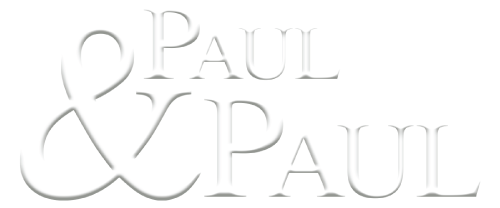Chemical patents play an important role in safeguarding cutting-edge innovations across many industries. Chemical patents cover a broad range of innovations, having a huge impact on industries such as cosmetics and beauty, chemistry, and pharmaceuticals.
As an inventor, you’ve probably poured your energy, education, and expertise into creating a revolutionary advancement. The next step is understanding how to protect your advancement, and that’s where patents shine. They allow you to claim your discovery, something that can’t be held or kept in a safe, as your rightful property. As an inventor, it’s critical to understand the patent process and how to secure your intellectual property rights.
What is a Chemical Patent?
A patent is a legal document granting an inventor exclusive rights to their invention for a fixed period of time. For chemical patents, that’s usually 20 years from the patent application filing date, not the date the patent was granted. The patent acts as a shield, protecting your invention from being reproduced, used, or sold in a manner you don’t approve of. In the United States, there are three types of patents, all governed by the U.S. Patent and Trademark Office (USPTO): utility, design, and plant. Chemical patents can protect chemical compounds, compositions of matter, methods of making the chemical compound or composition, and methods of use.
Criteria to Obtain a Chemical Patent
Patents are an incredibly complex and nuanced area of law, with lots of strict requirements. Patent applications are full of meticulous details that must be done right. There’s even a rule for the application’s margins. An experienced Philadelphia patent attorney can prove invaluable in navigating the complex world of filing patents, as one mistake on an application can result in a devastating setback.
There are three core requirements that an invention must meet in order to qualify for a patent.
- Novelty. Your chemical invention must be “novel”, which is patent-world jargon for something completely new – something that hasn’t been publicly disclosed or patented before. In order to establish the novelty requirement and to bolster your patent application, you must conduct (or hire someone to conduct) something called a prior art search. Essentially, this involves sifting through existing and previous patents that are similar to your invention to show that your invention is something that isn’t already on the market. This step is not only essential for a patent application with good approval odds, but it also gives the inventor peace of mind. If there’s something similar already out there, knowing that ahead of time gives you a chance to explain how your invention is substantially different or gives you an opportunity to adjust your invention to ensure it is going to meet the novelty requirement.
- Non-obviousness. Not only does your patent need to be novel, but it needs to be non-obvious, and not just to lay people. Most people working outside of the chemical field would consider most innovations to be far from obvious, but the standard that the USPTO uses is that the invention needs to be non-obvious to a skilled member of your field. This is to ensure that your invention represents a significant advance in the field beyond the existing knowledge and standards. This also gives the USPTO the assurance that your invention isn’t an obvious modification or combination of existing patented innovations.
- Utility. As mentioned, chemical patents are utility patents, and, as the name suggests, a utility patent must serve a purpose and must be useful. In your application, you’ll need to explain how to use this invention for its intended purpose, and that the invention actually works in meeting that goal. This is to ensure that patents are granted for innovations that are more than a theoretical concept and can be applied and used. New chemical compounds without a use are not patentable.
The Importance of an Experienced Philadelphia Patent Attorney
Patent law is painfully intricate and nuanced, and filing a successful patent application requires a meticulous and experienced hand. Don’t jeopardize your hard work by trying to meet every nitpicky requirement alone. Turn to someone who knows the rules and who has done this successfully many times before. Turn to an experienced Philadelphia patent law team who will put their legal expertise, technological proficiency, and hands-on patent experience to work for you. Let us safeguard your hard work and your legacy at the forefront of your field.
Paul & Paul have dedicated their entire practice to protecting inventors’ intellectual property. Backed by years of experience and successes, our team not only knows the law, but we have strong academic credentials across disciplines allowing us to understand your chemical patent in a way that most other attorneys can’t. We proudly serve clients across Greater Philadelphia and beyond. Contact us or call us at (215) 568-4900 today so we can get you scheduled for your free case evaluation.
